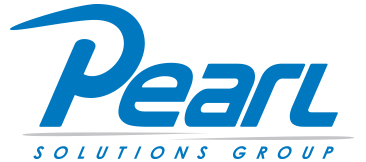Small businesses often operate with limited resources and tight budgets, making it crucial to ensure that every investment yields tangible results. By conducting an IT audit, small businesses can identify areas of inefficiency, potential risks, and opportunities for improvement within their IT environment which can ultimately reduce expenses, increase operational efficiency and drive sustainable growth and profitability.
Here are some key areas to prioritize during an IT audit:
- Hardware and Software Infrastructure: Assessing the current state of hardware components, such as servers, workstations, and networking devices, helps identify outdated or underperforming equipment that may be draining resources or hindering productivity. Evaluating software licenses, versions, and compatibility ensures legal compliance and optimizes software utilization. By addressing hardware and software deficiencies, businesses can improve system performance, reduce maintenance costs, and enhance overall efficiency.
- Network Security Measures: Ensuring robust network security is crucial for small businesses. Evaluate the effectiveness of firewalls, antivirus software, intrusion detection systems, and data encryption protocols. Identify potential vulnerabilities or weak points in the network infrastructure that may expose the business to cyber threats or data breaches. By strengthening network security measures, implementing multi-factor authentication, and conducting regular security updates, businesses can protect their sensitive data, customer information, and reputation.
- Data Backup and Recovery Processes: Data loss or system failures can have severe consequences for a small business. Assess the effectiveness of data backup and recovery processes to ensure that critical data is adequately protected and can be restored in case of an incident. Evaluate backup frequency, off-site storage solutions, and test the reliability of data restoration procedures. By establishing robust data backup and recovery mechanisms, businesses can minimize downtime, maintain business continuity, and prevent significant financial losses.
- IT Governance and Compliance: Evaluate the existing IT governance framework and compliance with industry regulations or standards relevant to the business. Assess IT policies, procedures, and documentation to ensure they align with best practices and legal requirements. Examine access controls, user privileges, and authentication processes to mitigate the risk of unauthorized access or data breaches. By establishing a strong IT governance framework and ensuring compliance, businesses can enhance security, minimize legal risks, and build trust with customers and stakeholders.
- Scalability and Future-Readiness: An IT audit should also consider the scalability and future readiness of the IT infrastructure. Assess whether the current systems and technologies can support the business’s growth plans and adapt to evolving market trends. Evaluate the feasibility of incorporating cloud computing, virtualization, or other emerging technologies to enhance scalability, flexibility, and cost-efficiency. By aligning the IT infrastructure with future business needs, small businesses can ensure long-term success, avoid costly technology migrations, and stay competitive in a rapidly changing business environment.
Proactive IT auditing empowers small businesses to stay ahead of potential issues, optimize their IT infrastructure, and continuously maximize ROI. By embracing an ongoing audit schedule, leveraging automation tools, actively monitoring systems, fostering a culture of continuous improvement, and aligning IT strategies with business goals, small businesses can ensure that their IT investments yield significant returns over time. Pearl Solutions Group’s managed IT services can help! Get started.




